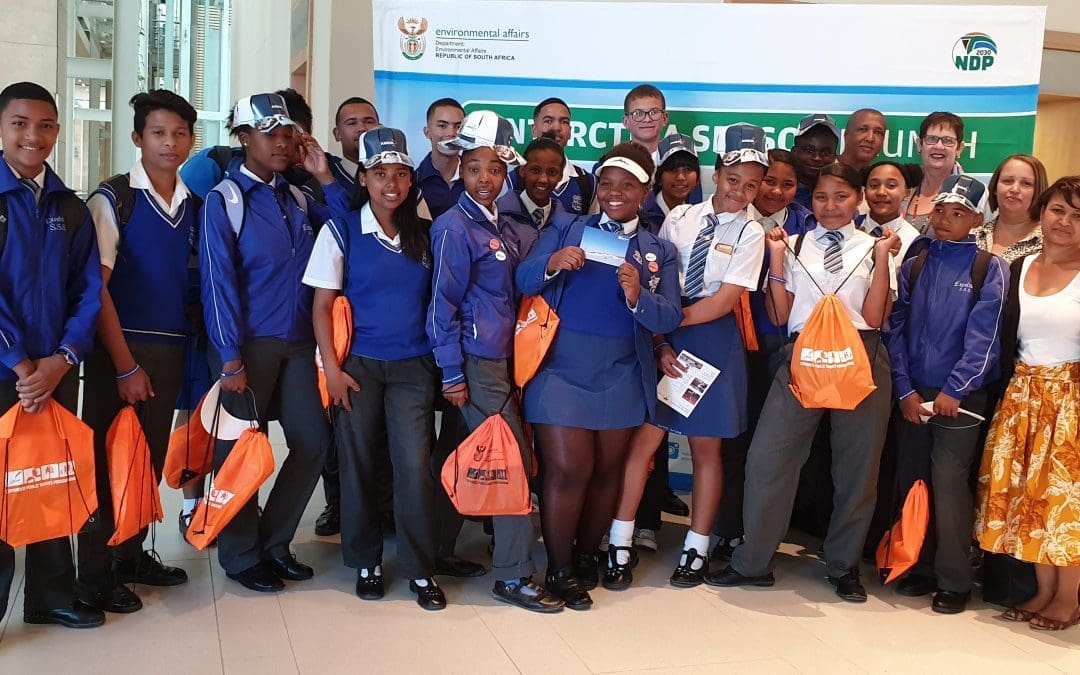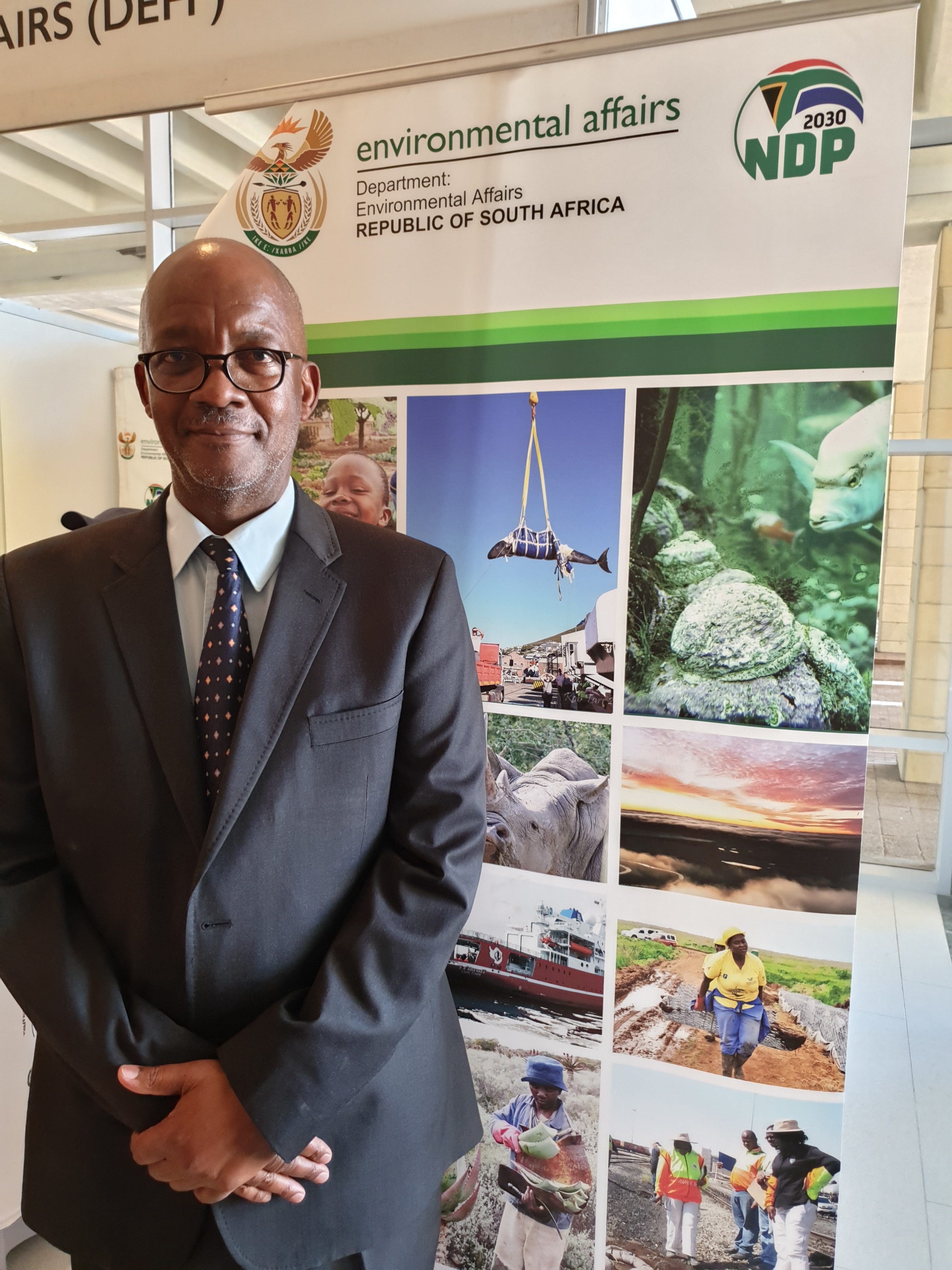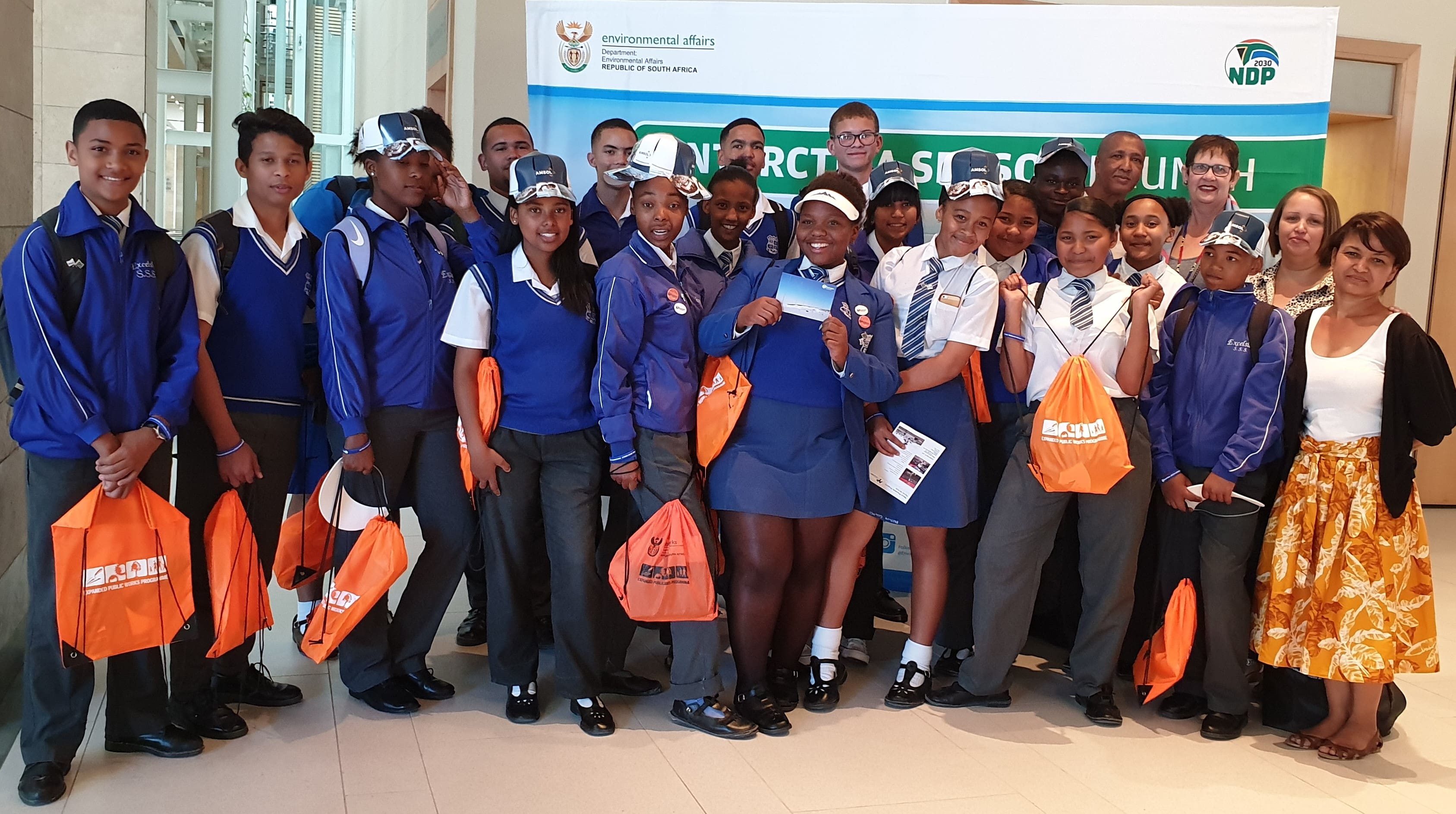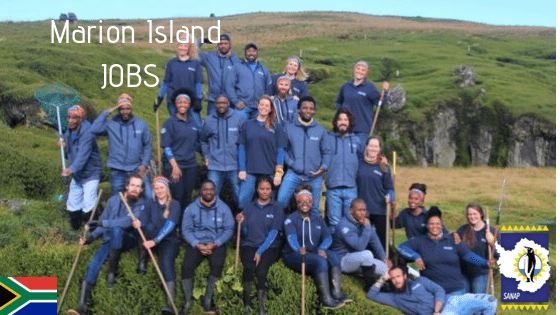
by Ria Olivier | Feb 24, 2020 | Announcement, Antarctica, Gough Island, Marion Island, Research, SA Agulhas II, SANAP, Southern Ocean, sub-Antarctic
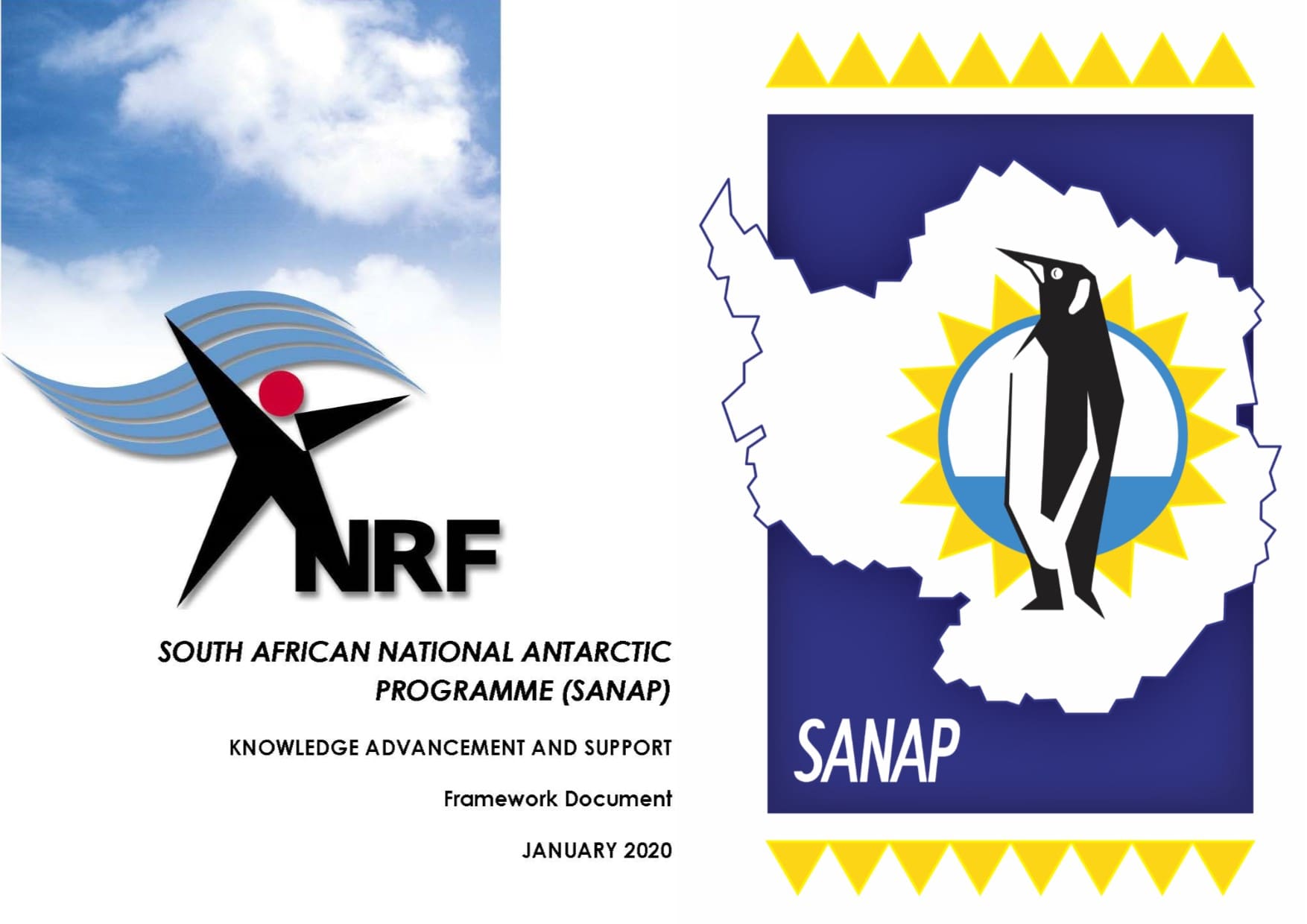
South African National Programme (SANAP)
CALL
Deadline 30 April 2020
(NRF General Application Guide 2021; Grants Management and Systems Administration (GMSA)
SANAP is a region-specific, theme-driven funding instrument which supports research in the Southern Ocean, including the Prince Edward Islands, and in Antarctica. As a competitive funding instrument, the chief eligibility criteria are:
- Research in the geographic region of the Southern Ocean, including the Prince Edward Islands, and / or in Antarctica
- Alignment with the research themes as detailed in the South African Antarctic and Southern Ocean Research Plan (2014-2024)
- Scientific merit and quality of the research proposal
- Evidence of associated human capacity development
SANAP research addresses the research themes detailed in the South African Antarctic and Southern Ocean Research Plan (2014-2024), and is underpinned by the overarching South African Marine and Antarctic Research Strategy (MARS) of 2015. The Antarctic and Southern Ocean Research Plan (hereafter “the Research Plan”) is focused on an integrative systems approach to understanding the evolution of the earth systems and ecosystems in the 21st Century. The Research Plan provides the overarching framework of operations for SANAP research activities, and follows the integrated progression from Earth Systems to Ecosystems to Human Systems in the research themes. Human activities and socio-political complexities in this international arena are of equal importance.(1).
Specific research themes detailed in the Research Plan are: Earth Systems, Living Systems, Human Enterprise and Innovation: Southern Ocean and Antarctic technology and engineering
Social Sciences, Law and Humanities applications are especially encouraged, as are applications addressing innovation. Each research theme has a number of sub- themes, and applicants are strongly encouraged to familiarise themselves with the thematic focus of the Research Plan, as well as with the overall strategic context provided in the MARS (both attached hereto) so as to ensure that their applications meet the very specific scientific and strategic objectives of this funding instrument.
EXECUTIVE SUMMARY
The National Research Foundation (NRF) recognises that in order for South Africa to be internationally competitive and to meaningfully contribute to the global economy, the country must have the capability to understand the knowledge produced by others. This understanding can best be developed through performing research. Publicly funded basic and applied research is viewed as a source of new ideas, opportunities, methods, and most importantly, the means through which problem solvers can be trained.
The South African Antarctic and Southern Ocean Research Plan (2014-2024) serves to link South Africa’s comparative geographic and research advantage, regional stewardship and national interest considerations to research themes so as to stimulate systems scale integration of knowledge and understanding. This will not only strengthen South Africa’s profile and develop advanced skills, but in so doing will also support the Country’s geo-political and citizenship goals in both regional and global dialogues. The importance of South Africa’s geographical proximity to Antarctica and its position as a Southern Ocean2 littoral State cannot be overstressed.
South Africa also maintains bases at Marion and Gough Islands, administered by the Department of Environment, Forestry and Fisheries (DEFF). Marion Island and Prince Edward Island together form the Prince Edward Islands Group, annexed by South Africa in 1947. Gough Island is a British protectorate which hosts the South African meteorological station, which operates as part of an agreement between South Africa and the United Kingdom.
The country runs the risk of not fully utilizing or maximizing the benefits from this geographic advantage, owing to a lack of adequate human capital. This includes the risk that the country may own research platforms and facilities, but could be subject to a form of “knowledge colonization” from international quarters, many of whom already possess a critical mass of requisite skills. The SANAP is a long-term funding instrument designed to ensure the creation of a demographically balanced Antarctic research programme that strives for internationally competitive research, promotes inter-disciplinarity and creates links with other African countries.
(1)The South African Antarctic and Southern Ocean Research Plan (2014-2024)
(2).This area includes the Prince Edward Islands over which South Africa exercises undisputed sovereignty. The Southern Ocean is defined as the region south of Africa comprising the ocean and the sub-Antarctic Islands up to, and including, the Antarctic Continental Shelf Zone.

by Ria Olivier | Feb 13, 2020 | Announcement, Current Event, Meetings, News, Research, SANAP, Science
 SAVE the Date for the 6th Biannual SANAP Symposium that will take place 22-25 June 2020.
SAVE the Date for the 6th Biannual SANAP Symposium that will take place 22-25 June 2020.
Read Gansen Pillay opening speech to the SANAP community at the previous symposium in Hermanus.
Communication form the Director of Knowledge Advancement and Support (KAS), Tracy Klarenbeek :  ” Please save the date for the 2020 SANAP Symposium: 22-25 June 2020 (inclusive). This date has been selected to accommodate the university exam timetable, and the departure of the SEAMester cruise. So as to feed into the international space, it is also scheduled to take place before the 2020 SCAR Conference in Hobart in August 2020. The event is going to take place in the Western Cape. More details to follow in due course. “
” Please save the date for the 2020 SANAP Symposium: 22-25 June 2020 (inclusive). This date has been selected to accommodate the university exam timetable, and the departure of the SEAMester cruise. So as to feed into the international space, it is also scheduled to take place before the 2020 SCAR Conference in Hobart in August 2020. The event is going to take place in the Western Cape. More details to follow in due course. “
Benefits of Attending Conferences 
Get feedback on an early version of your latest work.
Get to know other people in your field.
Hear about the latest research.
Improve your presentation and communication skills.
Meet your academic heroes.
Engage in high-level debates and refine your ideas.
Adding to your CV.
 Left: Opening session of the 5th Biannual SANAP Symposium hosted by CPUT and SANSA.
Left: Opening session of the 5th Biannual SANAP Symposium hosted by CPUT and SANSA.
Venue will soon be announced and Symposium website opened.

by Ria Olivier | Feb 13, 2020 | Announcement, News, Research, SANAP, Science

NRF General Application Guide 2021 -Grants Management and Systems Administration (GMSA)version 1
Published February 2020.
During the last three years the National Research Foundation (NRF) has embarked on a process designed to enhance and simplify the NRF administrative interface with Researchers, Students and Designated Authorities. This has been done by streamlining its application templates and its Call Opening process, in line with the forthcoming Research Support Strategies by the Department of Science and Innovation (DSI) and the NRF. These changes will create enhanced efficiency in receiving and processing applications and be more effective in prioritizing funding to best serve the NRF mandate. As a result of the streamlining, the NRF will publish the One Call for Applications for funding in February 2020 (Review Period 1) and others later in Review Period 2 under the following categories. Refer to Appendix 1 for the Review Periods.
Take note of closing date for SANAP call is 30 April 2020:  See page 11-13 (SANAP pg12). Download full document from Antarctic Legacy Archive
See page 11-13 (SANAP pg12). Download full document from Antarctic Legacy Archive

by Ria Olivier | Dec 18, 2019 | Announcement, Antarctica, Legacy, SANAP, Uncategorised
One of the ways Gateway nations have employed to generate an interest in Antarctica has been to hold an Antarctic launch or festival at the beginning of the Antarctic season (November to March).During the launch they celebrate their explorers, science, and remember those who perished in Antarctica endeavours. The Antarctica season in South Africa starts with the departure of S.A. Agulhas II during the first week of December. Since 2016 the Department of Environment Affairs has held seminars with the Norwegians over two days during this time. For 2019 a multilateral seminar was held over three days and the countries that leave for Antarctica from Cape Town plus China had been invited to participate.
The official opening session was addressed by Minister of Environment Forestry and Fisheries of South
Africa, Ambassador of Norway and Cape Town Port Manager. Other diplomats that attended the opening
session include Netherlands, Japan and Russia. South African stakeholders had exhibitions at the Cape
Town International Convention Centre (CTICC) over a period of four days. Dr Bemiasa of Madagascar
represented the Intergovernmental Oceanographic Commission sub-commission for Africa.
During the course of the multilateral seminar seven speakers from Norway, Germany, India and China
provided key note addresses and also acted as panelists. South Africans also provided some twenty one
presentations and also acted as panelists. The presentations covered Science, Polar heritage, Polar
logistics and Polar Gateways. The presentations were of a high standard and there was a healthy
exchange of ideas.

Dr Monde Mayekiso
A bilateral seminar was held with Norway 5th to 6th December. The bilateral discussions sought to identify areas of common interest and serve to deepen the relationship.
Dr Monde Mayekiso opened the Antarctic season exhibition on at the Cape Town International Convention Centre (CTICC). Exhibition includes stalls from DEFF, DPW, AMSOL, SANSA, and many more. The exhibition was attended by schools, the general public and attendees of the seminars and discussions.
The Antarctic Legacy of South Africa Exhibit at the Antarctic Season Opening. The SANAE IV 360 footage on the new SANAP website has been launched during the exhibition. Dr Gilbert Siko (DSI) & Mr Nish Devanunthan (DEFF) visit the ALSA stall and Quintes Venter and Andrea Raubenheimer of FishGate.

Excelsior Secondary School learners and teachers with AMSOL and ALSA caps, DPW bags and ALSA principal investigator, Ria Olivier

by Fishgate@sanap | Sep 25, 2019 | Announcement, Jobs, Marion Island, News, Overwintering Team, Research, SANAP, sub-Antarctic
New job opportunities available on Marion Island.
| Job Title | Station | Period | Closing Date | Download Job Advert |
| Communications Engineer | Marion Island | April 2020 - May 2021 | 14 October 2019 | Click here |
| Electrical Engineer/Technician | Marion Island | April 2020 - May 2021 | 14 October 2019 | Click here |
| Diesel Mechanic | Marion Island | April 2020 - May 2021 | 14 October 2019 | Click here |
| Medical Orderly | Marion Island | April 2020 - May 2021 | 14 October 2019 | Click here |
| Field Assistant: Seabird Research x2 | Marion Island | April 2020 - May 2021 | 14 October 2019 | Click here |
| Environmental Control Officer | Marion Island | April 2020 - May 2021 | 14 October 2019 | Click here |
| Assistant Environmental Control Officer | Marion Island | April 2020 - May 2021 | 14 October 2019 | Click here |
| Senior Meteorological Technician | Marion Island | April 2020 - May 2021 | 14 October 2019 | Click here |
| Assistant Meteorological Technician x2 | Marion Island | April 2020 - May 2021 | 14 October 2019 | Click here |
| Field Assistant: Plant Ecology | Marion Island | April 2020 - May 2021 | 25 October 2019 | Click here |
| Field Assistant: 2 x"Sealers" and 1x "Whaler" | Marion Island | April 2020 - May 2021 | 21 October 2019 | Click here |
| Field Assistant: Plant Ecology (wind effects) | Marion Island | April 2020 - May 2021 | 25 October 2019 | Click here |
| Field Assistant: Seabird Research x2 (MAPRU) | Marion Island | April 2020 - May 2021 | 31 October 2019 | Click here |

by Fishgate@sanap | Sep 4, 2019 | Gough Island, News, Overwintering Team, SA Agulhas II, SANAP, Southern Ocean, Tristan da Cunha
The S.A. Agulhas II departed from the Port of Cape Town at around 10pm, 02 September 2019 and will return on 07 October 2019. Click here to view the voyage schedule.
Who is onboard:
- The 65th Gough Island overwintering team – this team will be joined by the Gough64 field assistants forming part of Gough65.
- Scientists from South African Weather Service, University of Pretoria and Nelson Mandela University.
- Advanced party of the Gough Island Restoration Team led by Andrew Callender (Royal Society for the Protection of Birds).
- Team to deploy the new Gough Island emergency hut led by Dr Guy Preston.
- Team of the Department of Public Works.
- Logistics and coordinating team from the Department of Environment, Forestry and Fisheries (DEFF).
- Passengers on their way to Tristan da Cunha.
- Read more here.
Meet Gough65:
| Team Member | Position |
| Mr Errol Julies | Communication/Electronics Engineer and Team Leader |
| Mr Thendo Sikhwari | Senior Meteorological Technician and Deputy Team Leader |
| Ms Michelle Risi-Jones | Field Assistant and Deputy Team Leader- Scientific |
| Mr Dylan Seaton | Meteorological Technician |
| Ms Siyasanga Mphehle | Meteorological Technician |
| Mr Thabiso Maphumulo | Electrician |
| Mr Bubele Nongwejana | Medical Orderly |
| Mr Gilbert Kgang | Diesel Mechanic |
| Mr Christopher Jones | Field Assistant |
| Mr Alexis Osborne | Field Assistant |

L-R: Bubele Nongwejana, Thabiso Maphumulo, Gilbert Kgang, Errol Julies, Thendo Sikhwari, Siyasanga Mphehle and Dylan Seaton.

Field assistants: Michelle Risi-Jones, Alexis Osborne and Christopher Jones. Photo Credit: Michelle Risi-Jones.
Meet the team leader and deputy team leader of Gough65
Anché Louw, Antarctic Legacy of South Africa, 04 September 2019



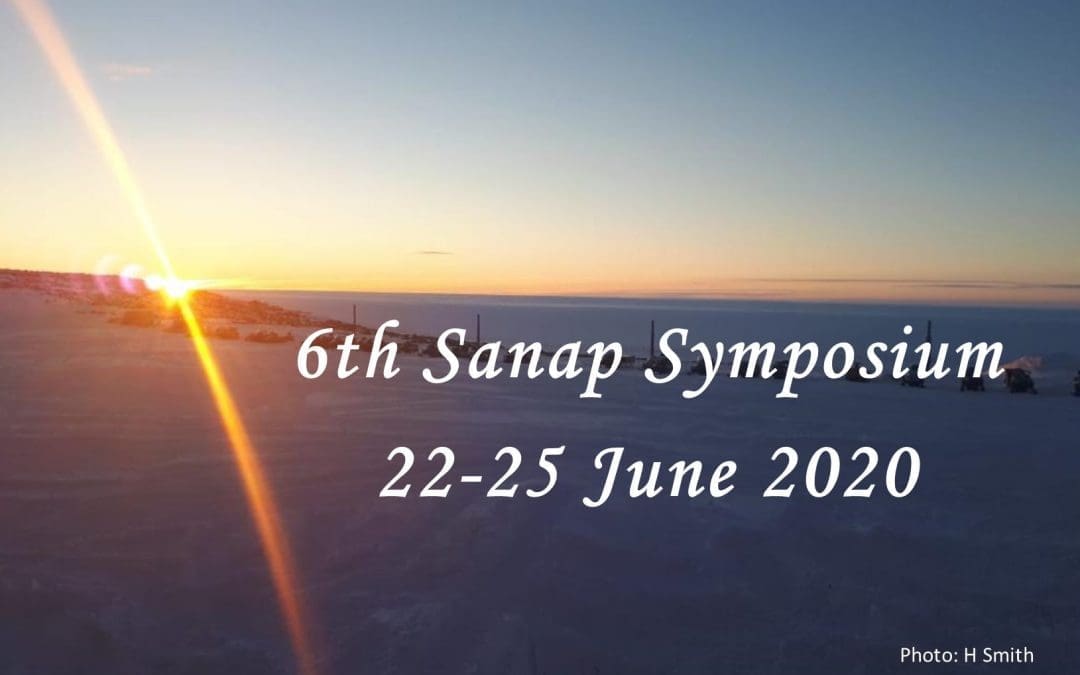
 SAVE the Date for the 6th Biannual SANAP Symposium that will take place 22-25 June 2020.
SAVE the Date for the 6th Biannual SANAP Symposium that will take place 22-25 June 2020.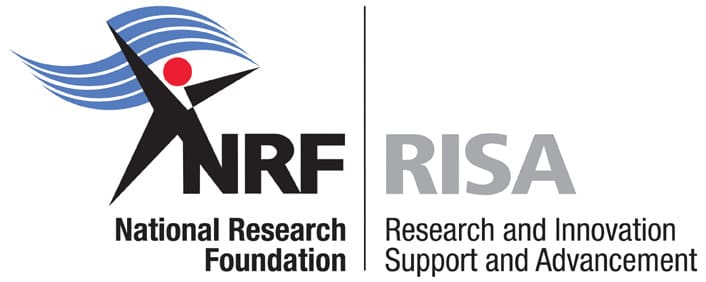 ” Please save the date for the 2020 SANAP Symposium: 22-25 June 2020 (inclusive). This date has been selected to accommodate the university exam timetable, and the departure of the SEAMester cruise. So as to feed into the international space, it is also scheduled to take place before the 2020 SCAR Conference in Hobart in August 2020. The event is going to take place in the Western Cape. More details to follow in due course. “
” Please save the date for the 2020 SANAP Symposium: 22-25 June 2020 (inclusive). This date has been selected to accommodate the university exam timetable, and the departure of the SEAMester cruise. So as to feed into the international space, it is also scheduled to take place before the 2020 SCAR Conference in Hobart in August 2020. The event is going to take place in the Western Cape. More details to follow in due course. “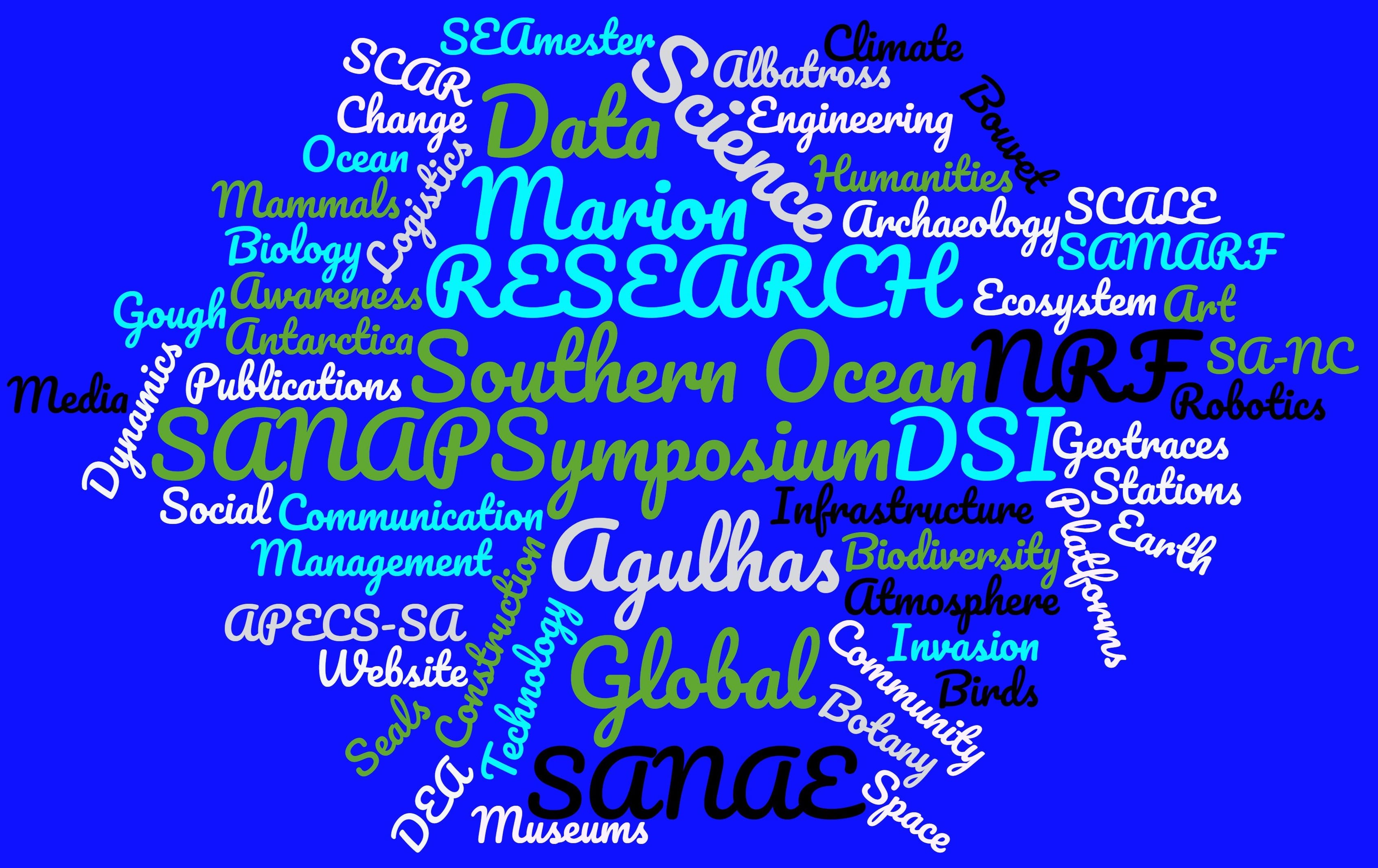
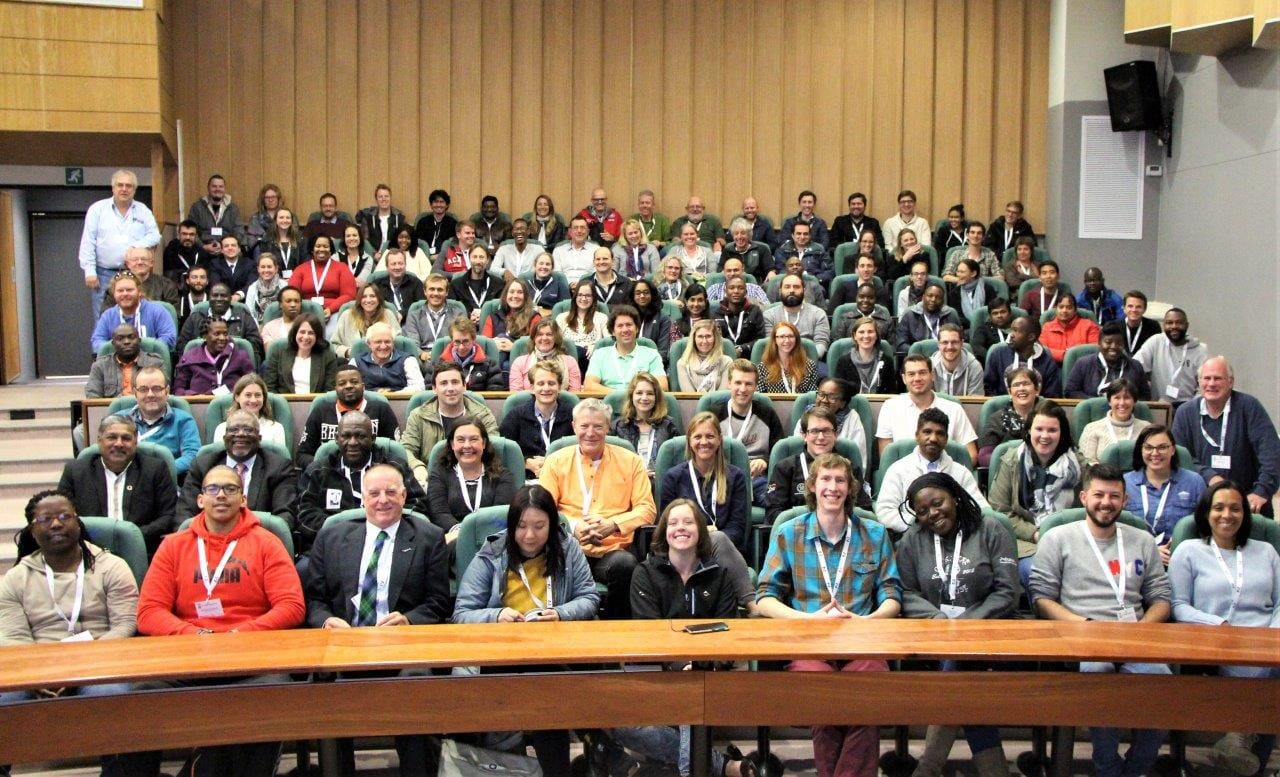 Left: Opening session of the 5th Biannual SANAP Symposium hosted by CPUT and SANSA.
Left: Opening session of the 5th Biannual SANAP Symposium hosted by CPUT and SANSA. 
